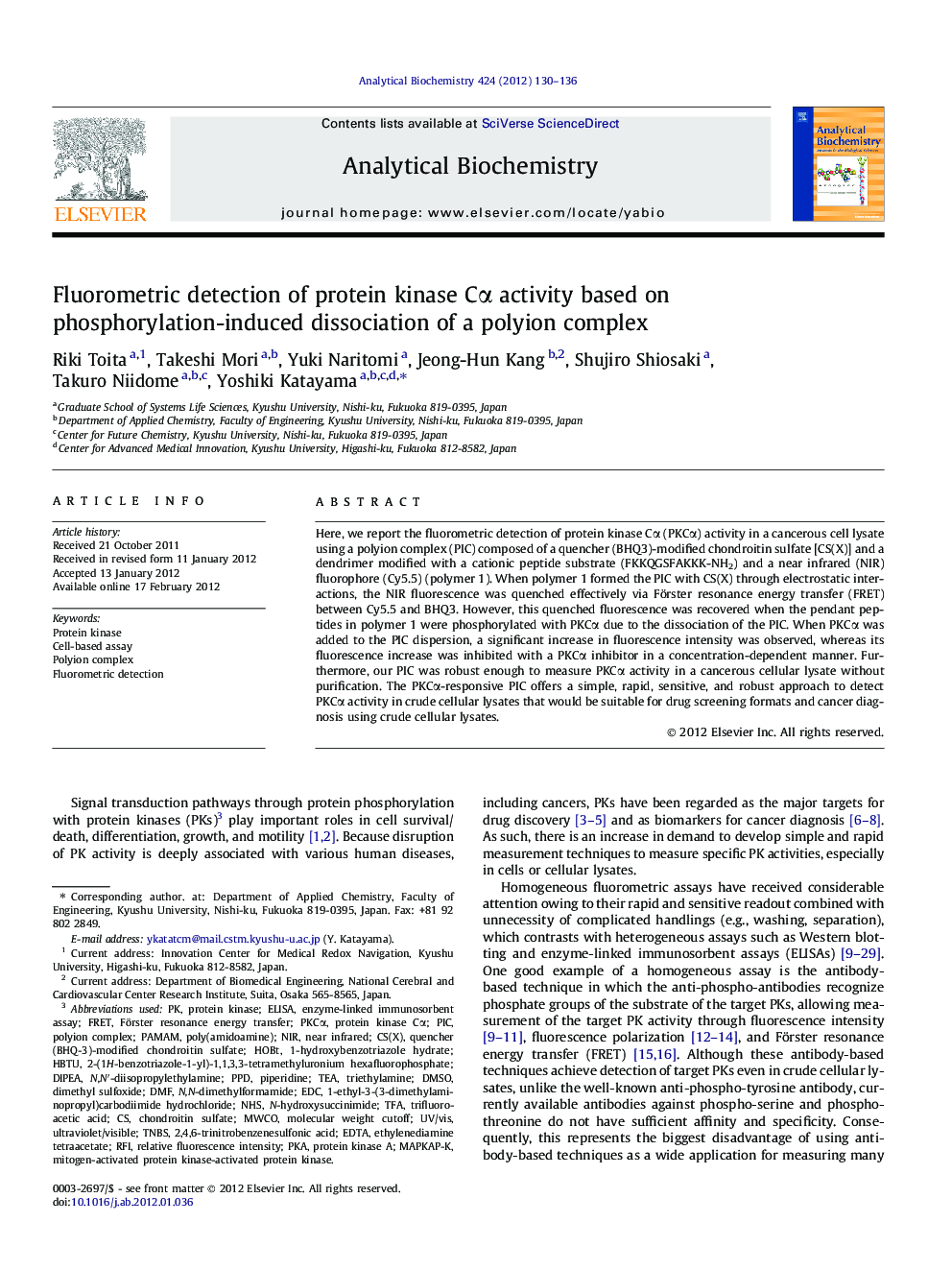| Article ID | Journal | Published Year | Pages | File Type |
|---|---|---|---|---|
| 10532741 | Analytical Biochemistry | 2012 | 7 Pages |
Abstract
Here, we report the fluorometric detection of protein kinase Cα (PKCα) activity in a cancerous cell lysate using a polyion complex (PIC) composed of a quencher (BHQ3)-modified chondroitin sulfate [CS(X)] and a dendrimer modified with a cationic peptide substrate (FKKQGSFAKKK-NH2) and a near infrared (NIR) fluorophore (Cy5.5) (polymer 1). When polymer 1 formed the PIC with CS(X) through electrostatic interactions, the NIR fluorescence was quenched effectively via Förster resonance energy transfer (FRET) between Cy5.5 and BHQ3. However, this quenched fluorescence was recovered when the pendant peptides in polymer 1 were phosphorylated with PKCα due to the dissociation of the PIC. When PKCα was added to the PIC dispersion, a significant increase in fluorescence intensity was observed, whereas its fluorescence increase was inhibited with a PKCα inhibitor in a concentration-dependent manner. Furthermore, our PIC was robust enough to measure PKCα activity in a cancerous cellular lysate without purification. The PKCα-responsive PIC offers a simple, rapid, sensitive, and robust approach to detect PKCα activity in crude cellular lysates that would be suitable for drug screening formats and cancer diagnosis using crude cellular lysates.
Related Topics
Physical Sciences and Engineering
Chemistry
Analytical Chemistry
Authors
Riki Toita, Takeshi Mori, Yuki Naritomi, Jeong-Hun Kang, Shujiro Shiosaki, Takuro Niidome, Yoshiki Katayama,
